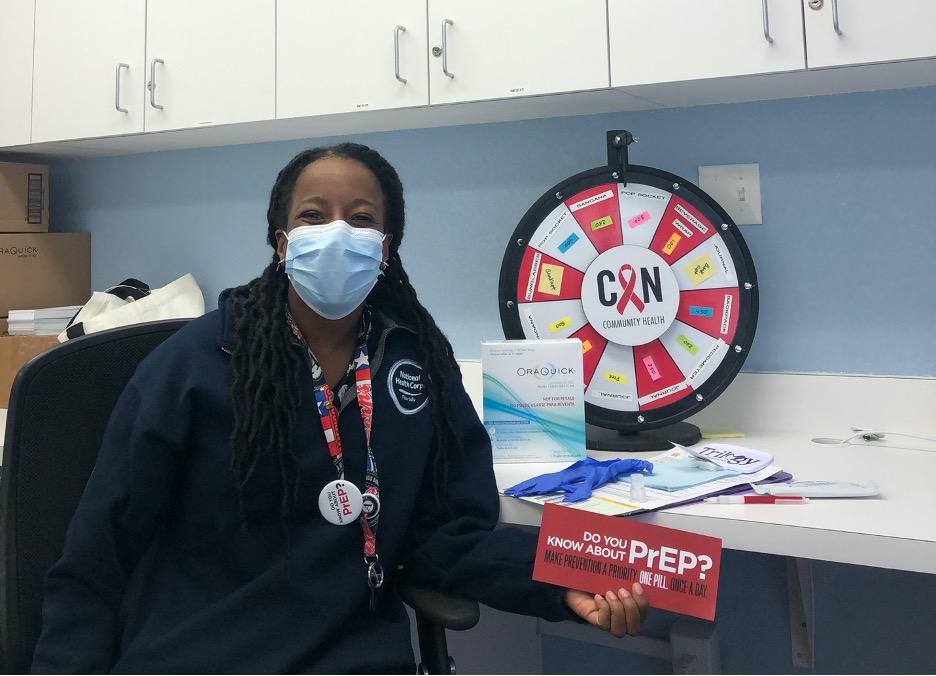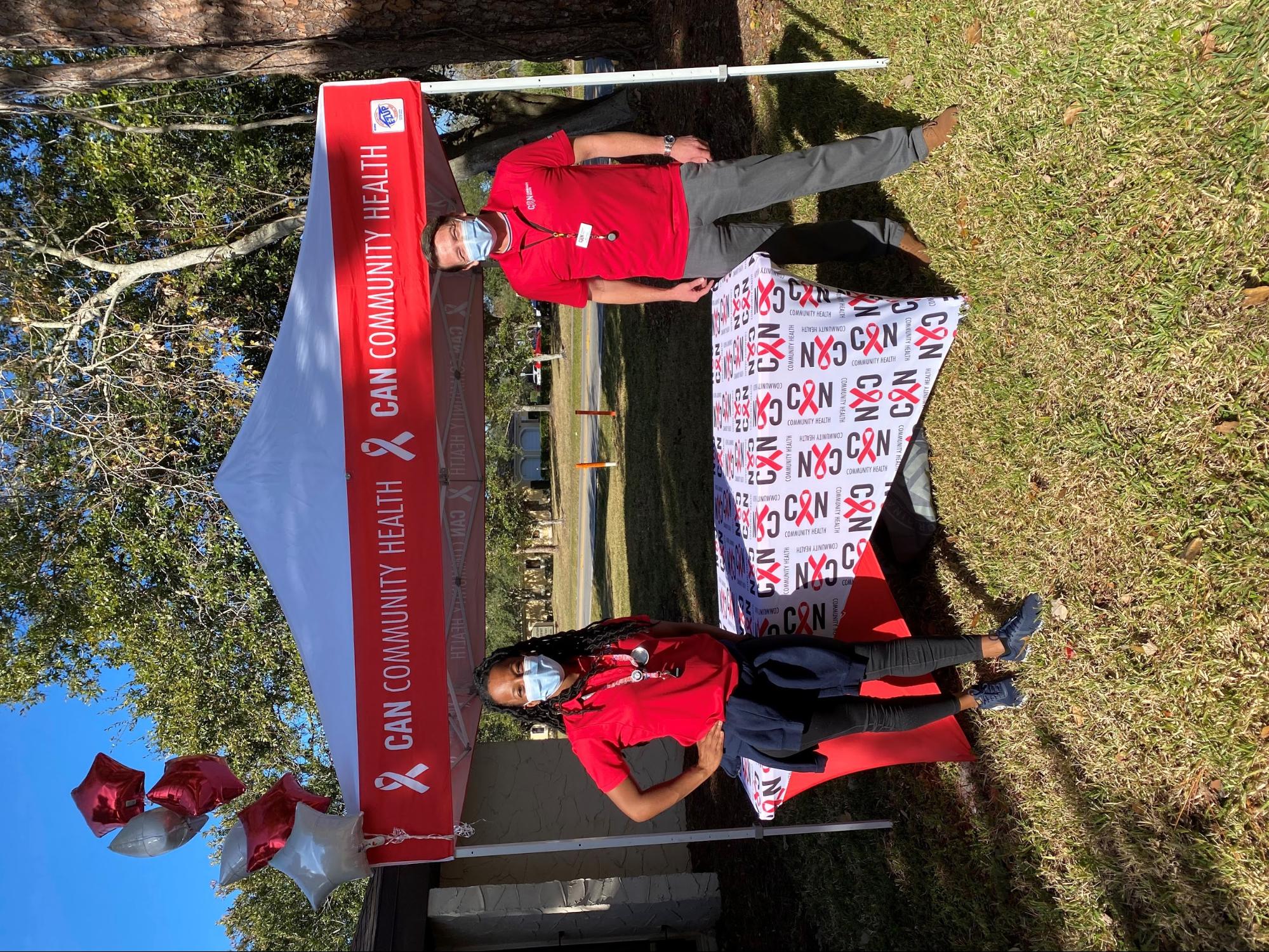Confidence for Connection by Evlyn Samuel
 I chose to serve as an AmeriCorps Member so I could learn to better connect with individuals and organizations so that I could be more effective as a health professional. As the Outreach Coordinator at CAN Community Health, my role focuses on capacity building to expand the Pre-exposure Prophylaxis (PrEP) Program. CAN is a non-profit health organization that specializes in HIV and Hepatitis C education, prevention, and treatment. Through this program, individuals seeking to preserve their wellbeing take a pill, PrEP, once a day to prevent HIV. Through conducting Community Health Needs Assessments (CHNA), I seek to decrease barriers to PrEP services access among underserved communities. For example, CAN purchases health insurance for individuals who are uninsured or underinsured so that they can take care of all of their healthcare needs.
I chose to serve as an AmeriCorps Member so I could learn to better connect with individuals and organizations so that I could be more effective as a health professional. As the Outreach Coordinator at CAN Community Health, my role focuses on capacity building to expand the Pre-exposure Prophylaxis (PrEP) Program. CAN is a non-profit health organization that specializes in HIV and Hepatitis C education, prevention, and treatment. Through this program, individuals seeking to preserve their wellbeing take a pill, PrEP, once a day to prevent HIV. Through conducting Community Health Needs Assessments (CHNA), I seek to decrease barriers to PrEP services access among underserved communities. For example, CAN purchases health insurance for individuals who are uninsured or underinsured so that they can take care of all of their healthcare needs.
From the onset of my service term, I have been able to practice communicating information on HIV prevention and treatment in a variety of contexts. My audiences range from a group of men recovering from addiction, to individuals wanting to know their HIV status to medical professionals with other focuses such as primary care. With each interaction, I have to gauge what approaches would allow me to connect with others and draw on different techniques depending on the audience.
With one of our community partners, a substance use disorder rehabilitation center for males, it has been most effective to take a laid back and conversational approach to educational sessions. This has been most appropriate because the residents are more likely to engage with us, as guest speakers, if the conversation is lighthearted because it was a break from the intensive counseling and recovery work they would be doing during their in-patient stay. When speaking to other health professionals, it helps to speak to situations they likely encounter so they can see the direct relevance of how and when to refer patients to CAN for specialty services such as HIV care management. When tabling events at community health fairs, it has been most effective to offer free swag, such as condoms, lube, and informational materials probing for the passerby’s questions.
center for males, it has been most effective to take a laid back and conversational approach to educational sessions. This has been most appropriate because the residents are more likely to engage with us, as guest speakers, if the conversation is lighthearted because it was a break from the intensive counseling and recovery work they would be doing during their in-patient stay. When speaking to other health professionals, it helps to speak to situations they likely encounter so they can see the direct relevance of how and when to refer patients to CAN for specialty services such as HIV care management. When tabling events at community health fairs, it has been most effective to offer free swag, such as condoms, lube, and informational materials probing for the passerby’s questions.
Regardless of the context, demonstrating my confidence has been essential in being able to make a meaningful impact. Prior to serving at CAN, my experiences in the health field largely focused on non-communicable chronic disease, nutrition, and maternal and child health, where individuals are more readily open about their associated behaviors. When talking about matters related to sexual health or substance use disorders, it has become all the more important for me to establish a rapport of trust with patients so we can have meaningful conversations to influence their behaviors. It has been beneficial being new to the field because I was more intent on trying to understand patients’ perspectives rather than directing the conversation with my own knowledge. My supervisors ensured that I received in-depth training on risk reduction counseling, breakthroughs in the field of HIV, and all the subject areas I would be teaching. This training, in conjunction with observing my colleagues connect with the community with genuine compassion, has allowed me to grow more confident. Ultimately, as I grow in confidence and my ability to connect with patients, I have learned how to provide the best care possible to patients.
